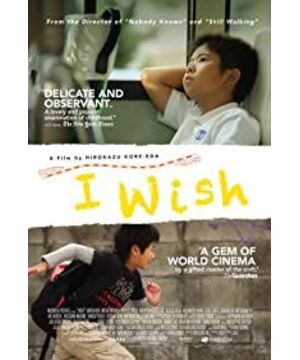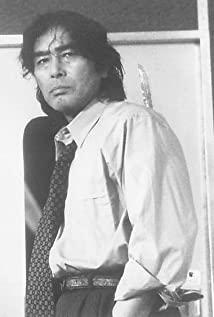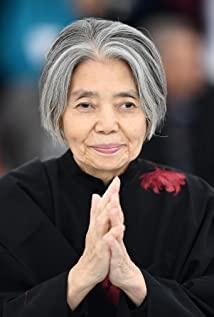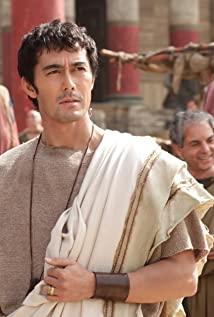The altered lyrics are precisely used to outline the melancholy expression and posture of the protagonist in the movie "Miracle" at the moment of wishing. "When two bullet trains with a speed of 260 kilometers per hour cross each other head-on for the first time, a miracle will occur..." With a pious desire, the children set off from Hakata and Kagoshima respectively, and they rushed to the train that was about to meet. Where, I made my wish at the moment of the train meeting... The English film of the film is called I Wish, but at that magical moment, Hang Yi gave up his wish.
To commemorate the opening of the Kyushu Shinkansen, JR (Japan Railway Company) invited Director Hirokazu Ee to create a feature film based on the subject of the train. The director proposed to target children and trains as the carrier, so "Miracle" was created. In 2011, "Miracle" directed by Hirokazu Ee was released in Japan, and has since been screened in Chinese art theaters many times. It has been popular with Chinese movie fans along with films such as "Diary of the Sea Street" and "Deeper Than the Sea".
Hang Yi, the protagonist in the film, a sixth-grade boy, was forced to separate from his younger brother after the disintegration of his family. He followed his mother back to his grandmother’s house in Kagoshima and started a new life. He was tortured by the local volcanic ash every day. The younger brother lives together again. Knowing that the huge energy generated when high-speed trains meet and pass by can make a wish come true, Hangyi, who is extremely mobile, draws up an amazing plan: he is going to make a wish. However, his wish is not to reunite the whole family, but to let the volcanic eruption destroy Kagoshima-for him, the volcanic eruption can bring many good things in a chain: get rid of the pervasive city of volcanic ash, reunite the whole family to start life again... and In stark contrast, the other children’s wishes are more practical: want to run faster, want to be an actor, want to quit gambling with father... Only Hang Yi, his wish is too dark... But it is still a one Diablo is also a kind of innocence in children's thinking. However, Hangyi gave up his wish. He said, "Compared with my family, I chose the world..." This final reconciliation is not so much an optimism, as it is aging, and the speed of aging is beyond Kyushu New. The top speed of the main line. At the end of the film, Hang slyly classified himself as a member of the grandfather's camp with the phrase "that kid hasn't gotten to know the goods" when he returned home. This kind of epiphany growth is horrible.
What's even more pity is that the director crudely explained the cause of Hang Yi's epiphany in the cheapest form. In the climax passage of "Miracle", faced with the passing bullet trains, he was hesitant to make a wish while holding a protective net. Suddenly his brain activity was shown by the director in the form of a slide show—this passage is exactly for many. The "super flashback" praised by movie fans: the water-blue popsicle with a bit off, the inexplicable old dance gestures of grandma, the red and black paint remaining on the paint board, and the floats constantly floating in clear water. Bright red swimming trunks, pure white light pan with a bite off, burnt yellow potato chip slag that brings together the essence of flavor, Marble's peaceful dying state, a group photo of the two brothers growing up along the way, the hand-painted original cover of the Dad band album... …
Some movie fans exclaimed——I’ve never seen a director who can present life so beautifully…
Is it true?
The so-called "super flashback" is actually the thought process of the protagonist presented to the audience by the director using montage methods. All of these are the slide switching of the things that my brother has nostalgic for. In his essay collection "The Speed of Walking" is talked about "growth": "Although happy, it is mixed with sadness. Although sad, the milk is still delicious. Experiencing this kind of complex feelings is not called growth but also called growth. what……". In the "flashback slideshow" of "Miracle", every object image is full of sadness. The obsession with objects arouses the sympathy of the audience because of the greed of the memory owner, because the audience has always projected emotions on the objects of life. The tears are due to conditioned reflex, not real experience, experience takes time as evidence.
If you delete this series of flashbacks, whether it’s the old couple’s seeing off before making the wish, or the cemetery afterwards, it’s enough for the children to take the audience to appreciate the "death" or "passing away", every complete emotion. The experience segment is a sufficient period of time, and the audience has followed the character to perceive everything. The series of straightforward slides is tantamount to annoying snake feet.
After the wish was made, only the empty railway protection net was left at the intersection of the two cars. The wishing flag inserted in the gap between the iron nets floated alone in the wind. At this moment, the wish has been buried, and the children's growth has been visually completed: Marbao could not. After the resurrection, Linden still lags behind, painting still needs a stroke of hard work, and the path of actors is still full of enemies...All this is enough, the audience can understand the growth of the child without the series of slides.
In a movie, the sound is more powerful than the picture. The suffocating noise of the two cars passing by should be more credible than the most sentimental literary label guitar sound. Unfortunately, the director abandoned the real sound effects of the environment and replaced it with a sad guitar soundtrack. The interlacing of ordinary trains that appeared twice in the first half of the film, the groaning of the train tracks, and the volcanic ash engulfed by the airflow. You can even hear the astringent sound of the volcanic ash rubbing in the air. The world where my brother has the impulse to destroy, the life that is truly made of time-unbearable, but it grows in your veins and cannot be cut off.
His brother Hangyi always appears as a full adult thinking mode in the film. His sensitivity and criticism of the surrounding environment have long had the taste of everyone being drunk but I am alone. When rushing to school in the morning, he suddenly stopped on the mountain road, staring at the Sakurajima volcano not far away, and questioned the whole world, "Mingming volcano is erupting, why is everyone not taking it seriously?" Such a sensitive and irritable person, A person who dared to teach his father how to communicate with his wife, and a person who disliked his peers and left behind, why could he "choose the world compared to his family" so quickly? This tear-jerking line, from the perspective of the child's naive master, obscures his unbelievable love. As the most important protagonist of the film, his epiphany makes me shudder-if so, reconciliation with the world, then how will the future pass?
Buddhism has the term "root device", which refers to the quality of sentient beings to accept the Dharma. All beings have roots, and the level of roots determines the degree to which they accept the Dharma. According to this logic, my brother had an epiphany at the moment when the two cars intersect. However, this sentence "I chose the world compared to my family" was lost to the sentence my brother asked his dad after returning home-"What is the world?" This is the puzzle and question that the child should have. , To the father's unreliable answer, the younger brother also gave the child the smile he deserved. This is the realm of "Bodhi without a tree". Audiences who understand life may like more brothers.
The younger brother’s laughter and confusion are within measure, while the so-called epiphany of the older brother is imposed on the audience by montages. In that series of montages, it was Hirokazu Kee who cheated—he infinitely magnified the time when the trains crossed. False condensed time, not the time in the complete time and space that he should have inherited and promoted.
The film industry believes that it is Hirokazu Ee as the best candidate to succeed Ozu and Naruse. He once explained the change in his creative style: "...When my mother passed away, I felt: Ah, I am no longer someone's son. Three years later, I became a father, and the worldview has indeed changed. "It is the director Hirokazu Kee who criticized the naiveness of TV and movies earlier. He said, "There can be no works that anyone can understand... The blind pursuit of'understandable' to indulge the audience is an overconfidence in communication, which has led to TV and movies. Immature, and then divorced from reality...". In order to explain Hangichi's choice, the "super flashback" should not belong to the "understandable" passages of Shige Hirokazu's work.
It was Hiro Kazue who made the documentary "When the Film Reflects: Hou Xiaoxian and Yang Dechang", and he has also publicly expressed his creative ideas many times and was deeply influenced by Hou Xiaoxian. Coincidentally, as the predecessors of the film, Hou Xiaoxian and Yang Dechang have each shot children's perspective films, the former has "Dongdong Holidays" and the latter has "Yiyi". In the film "Yi Yi", Yang Yang chooses to shoot other people's back because he can't express what he sees and thinks. In his photos, each one is lonely and alienated because of the observer's incomprehension. The immortal time freeze frame is the imaginary reality reborn in complete time and space. However, Yang Yang, who took a dozen thick pictures, still couldn’t understand the adult world. He said when he said farewell to his mother-in-law-he wanted to tell his new-born brother "I think I'm old...", pay attention, this is him" "I feel", there is still innocence in the words. And "Miracle" makes us "feel" Hang Yi is old.
Therefore, I changed the lyrics of "Hill" from "almost" to "already". Because it is more suitable for the original text of the lyrics, it is actually another children's film, "Yi Yi" by a director who adheres to his personal creative philosophy.
View more about I Wish reviews











